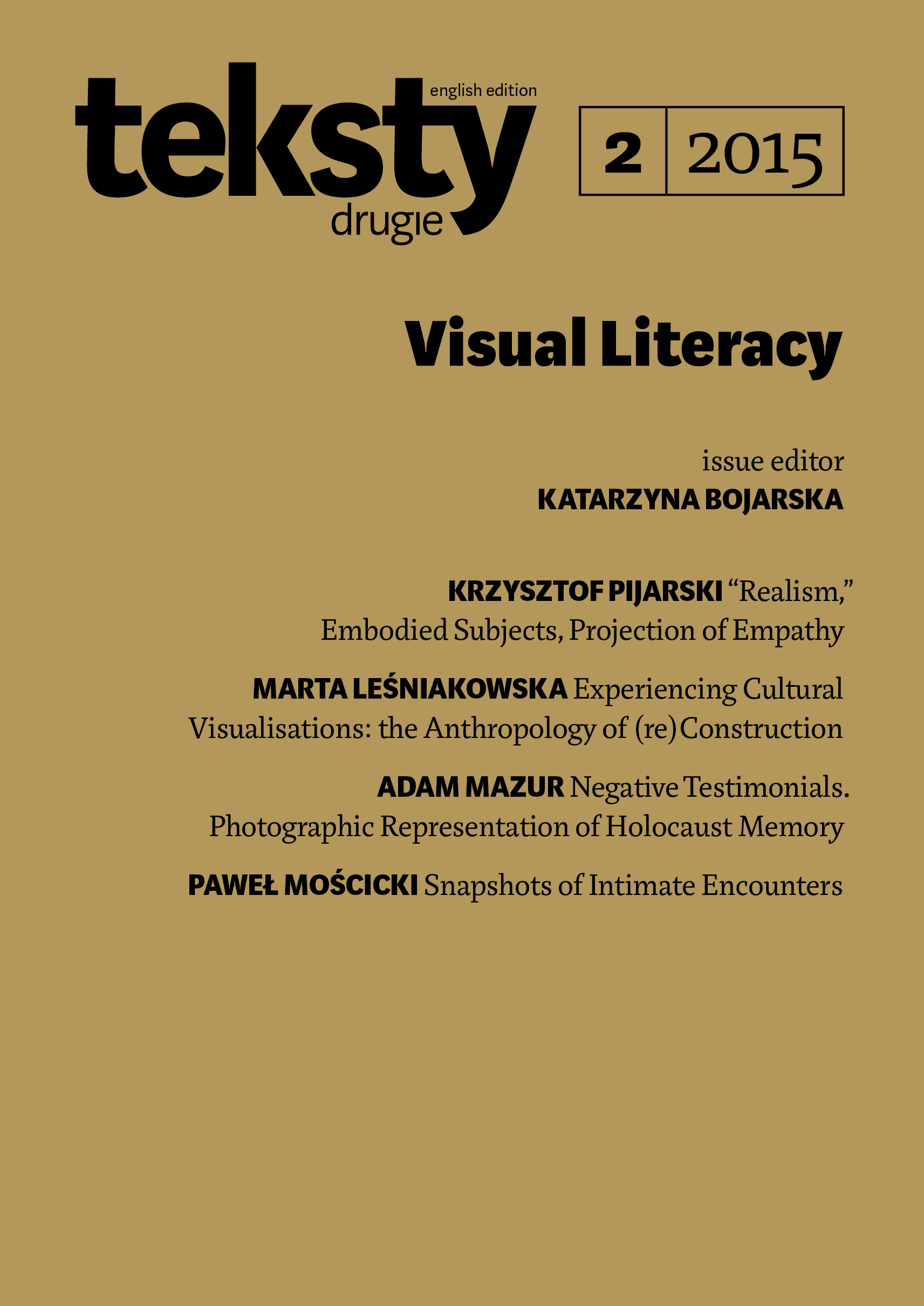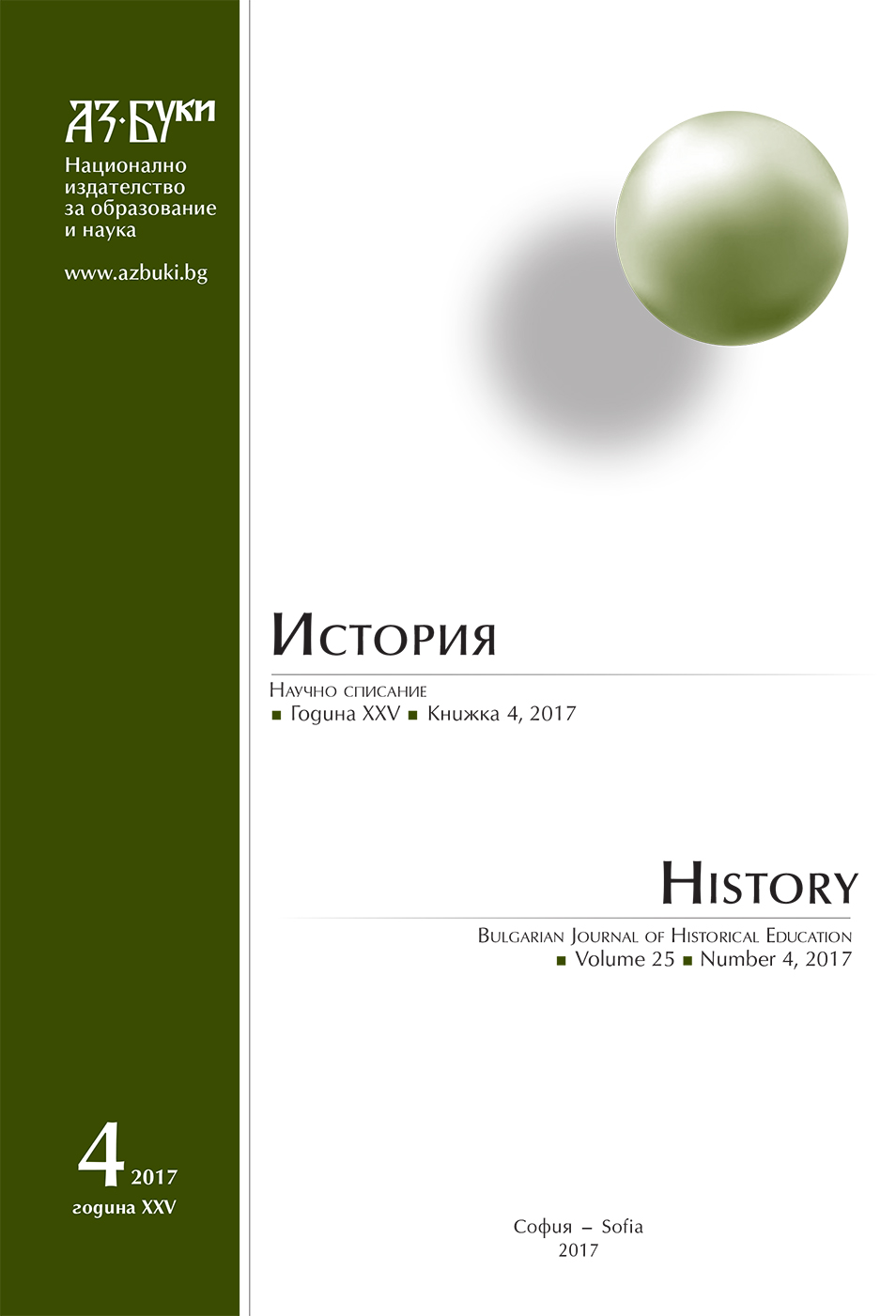
We kindly inform you that, as long as the subject affiliation of our 300.000+ articles is in progress, you might get unsufficient or no results on your third level or second level search. In this case, please broaden your search criteria.

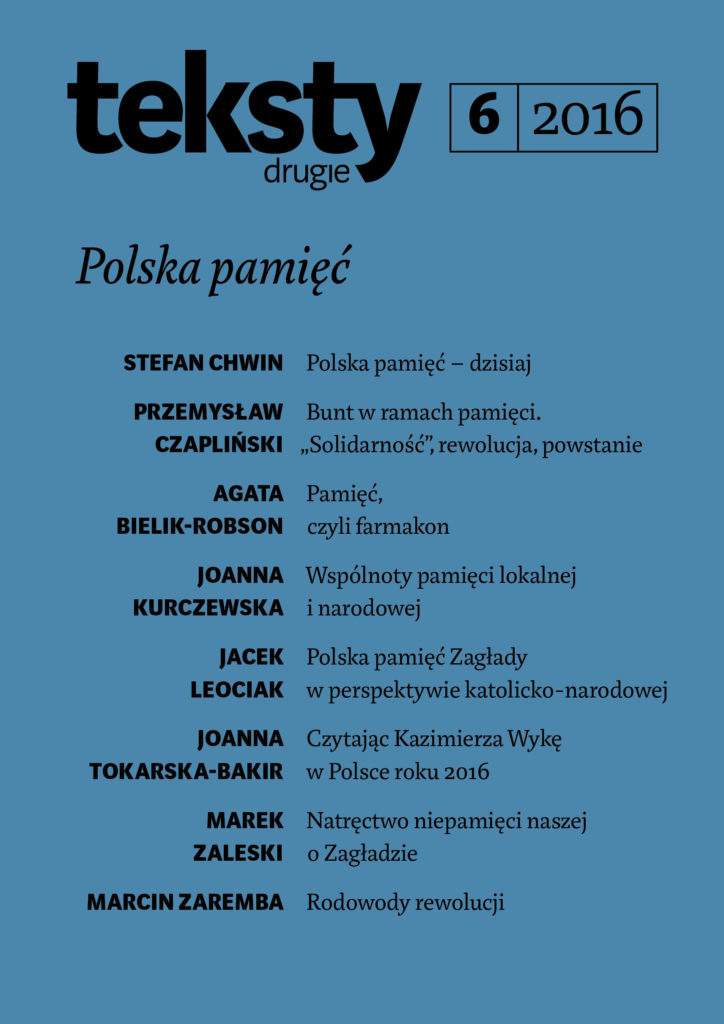
Bilewicz applies notions borrowed from the psychology of emotions to understand collective (im)memory in Poland, with a particular focus on defensive reactions to new historical data on Poles’ negative behaviour. Based on James Gross’ concept of emotion regulation, Bilewicz elaborates a model of downregulating collective moral emotions (such as guilt and shame). He then applies this model to the debate on the Jedwabne pogrom. He also outlines systematic social psychological studies that support his proposed emotion downregulation model. The article concludes with a discussion of alternative ways of presenting negative history – ways that overcome those defensive emotion regulatory processes.
More...
The Jewish Holocaust has a special place in Polish discourses on memory. It would be hard to overestimate its importance in constructing a model of Polish identity. But Leociak points out a weakness in Polish Holocaust memory – one that appears especially in narratives about saving Jews. The rhetoric, poetics and metaphors of these discourses – both private and public – are astonishingly durable, given the changing political context. This article is a preliminary exploration of a certain type of Polish discourse on Holocaust memory, one that has a long tradition but is now gaining prominence. It could be described as a Catholic-national discourse, where both elements have equal weight, affirming its rootedness in the ideology of the prewar Catholic National Democracy formation (also known as ND or ‘Endecja’).
More...
Dauksza examines the status of non-Jewish Polish concentration camp survivors. Their wartime experience and the way in which they functioned after the war has always been and continues to be different from the Jewish experience. Based on empirical studies, Dauksza argues that the problem is that their experience is ‘an experience without a name’: unable to name it, they are also unable to experience what happened to a significant group of Poles during the occupation. The question concerns not only actual former prisoners and their relatives – as the framework of post-memory transfer would suggest – but also individuals who for several years lived in fear of being deported, as well as those who witnessed the deportation of others, including Jews.
More...
25 years ago, Polish gentiles were interviewed on the disappearance of their Jewish neighbours. Kapralski re-examines those interviews in order to revise current attitudes to this kind of memory. He presents memory as a product of current constellations of the remembering subject’s interests, whereby the subject is embroiled in existential efforts to construct mnemonic safety, which in turn is the basis for processes of reconstructing collective memory. These processes were particularly vital in the context of the uncertainty that marked the transformation in the 1990s – a transformation that Kapralski frames in terms of a structural trauma that shapes memories about historical trauma. Such a framing of memories of the Jews means that they have been publicly commemorated in Poland, but they are not remembered within the structures of communicative memory.
More...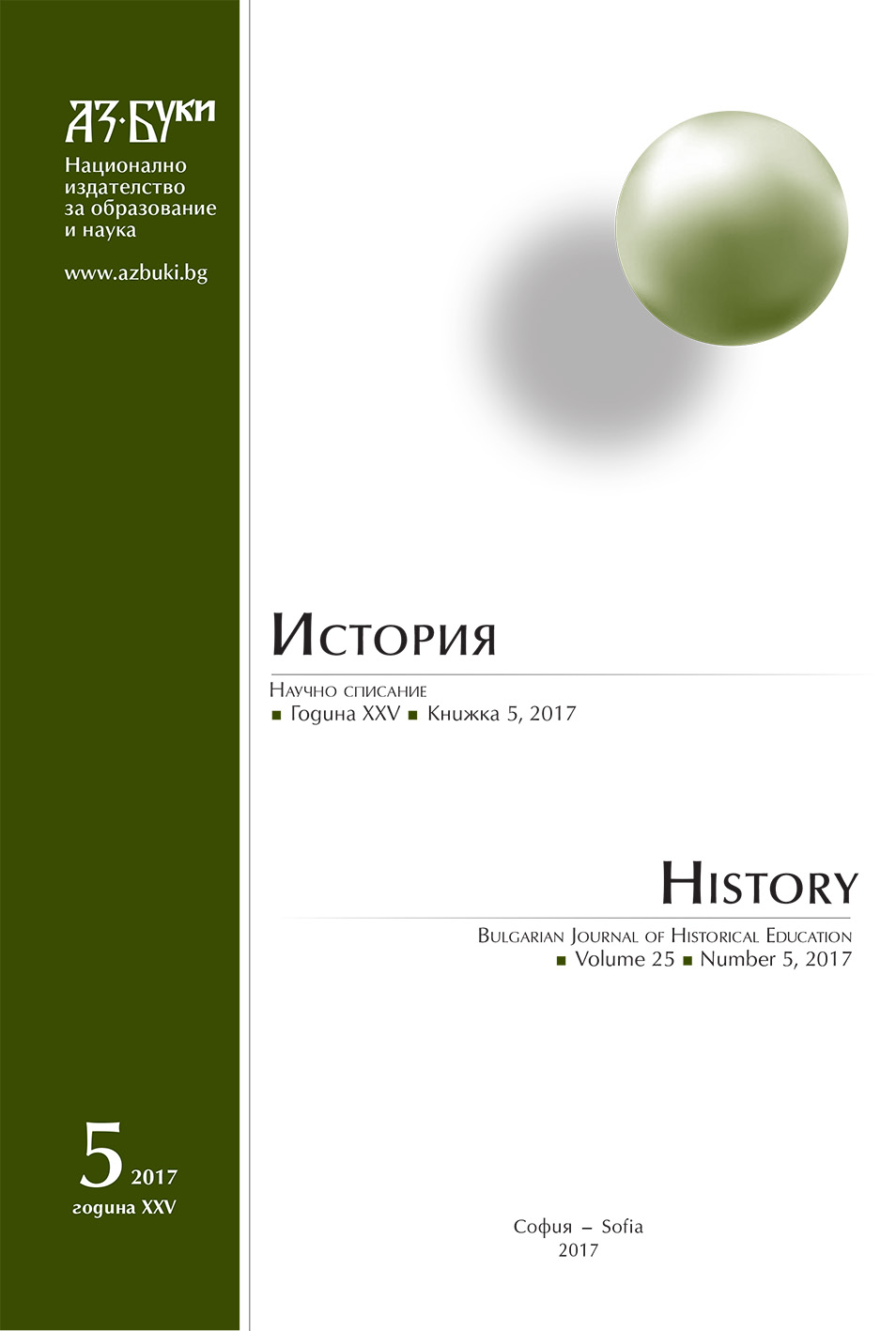
The article presents one of the tragic stories that took place during the World War II in occupied Poland. It describes the fate of one rural family playing an important role in Markova and its surroundings by engaging it in various public initiatives. The article describes the situation in occupied Markova, the chronology of the crime against Jews and Poles, the efforts to punish the perpetrators, and the actions aimed at perpetuating the heroic life and death of the Ulma family.
More...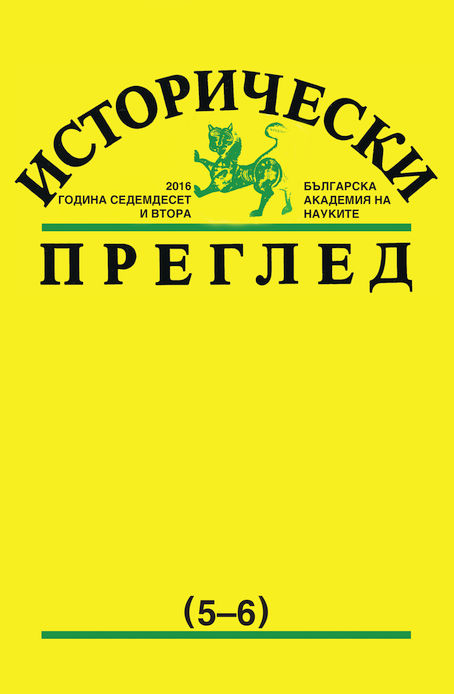

The establishment of Czechoslovakia in 1918 was refused by a large proportion of its inhabitants, mainly from the part of Czechoslovak Germans and Hungarians. Beside them, a certain number of Slovaks rebelled against the state project of Czech and Slovak political elites as well. Some of them preferred to remain in the frame of the historical Hungary because they shared with Hungarians for centuries transmitted cultural patterns and cultural repertoire, the use of which came by implementing the idea of Czechoslovakism to the threat. Rebelling attitudes against Czechoslovak statehood were registered especially in the ethnically heterogeneous regions and cities which were located in the contact zone between the territories with the majority Slovak population on the one side and the minority Hungarian one on the other. Analysing the archival documents, the author of the paper focuses firstly on reactions of indigenous inhabitants of Slovak origin of the city of Košice to the establishment of Czechoslovakia, secondly, on pursuits of the political elites to implement the Czechoslovak state idea in the public space of the city, its successes, failures and tensions between the Czechoslovak and Slovak (autonomous) camps of nationalists. Thirdly, the analysis of the electoral behaviour stands in the spotlight, according to which the majority of local indigenous Slovaks voted the oppositionist parties what indicates that, in the long term, the idea of the Czechoslovak state was refused by these inhabitants. The purpose of the study lies in recognizing differentiated attitudes of the Slovak interwar (mainly urban) society to the Czechoslovak statehood and, hence, in outlining an alternative story to the traditional, in the cultural memory reproduced narrative about the establishment of Czechoslovakia as a “national liberation”.
More...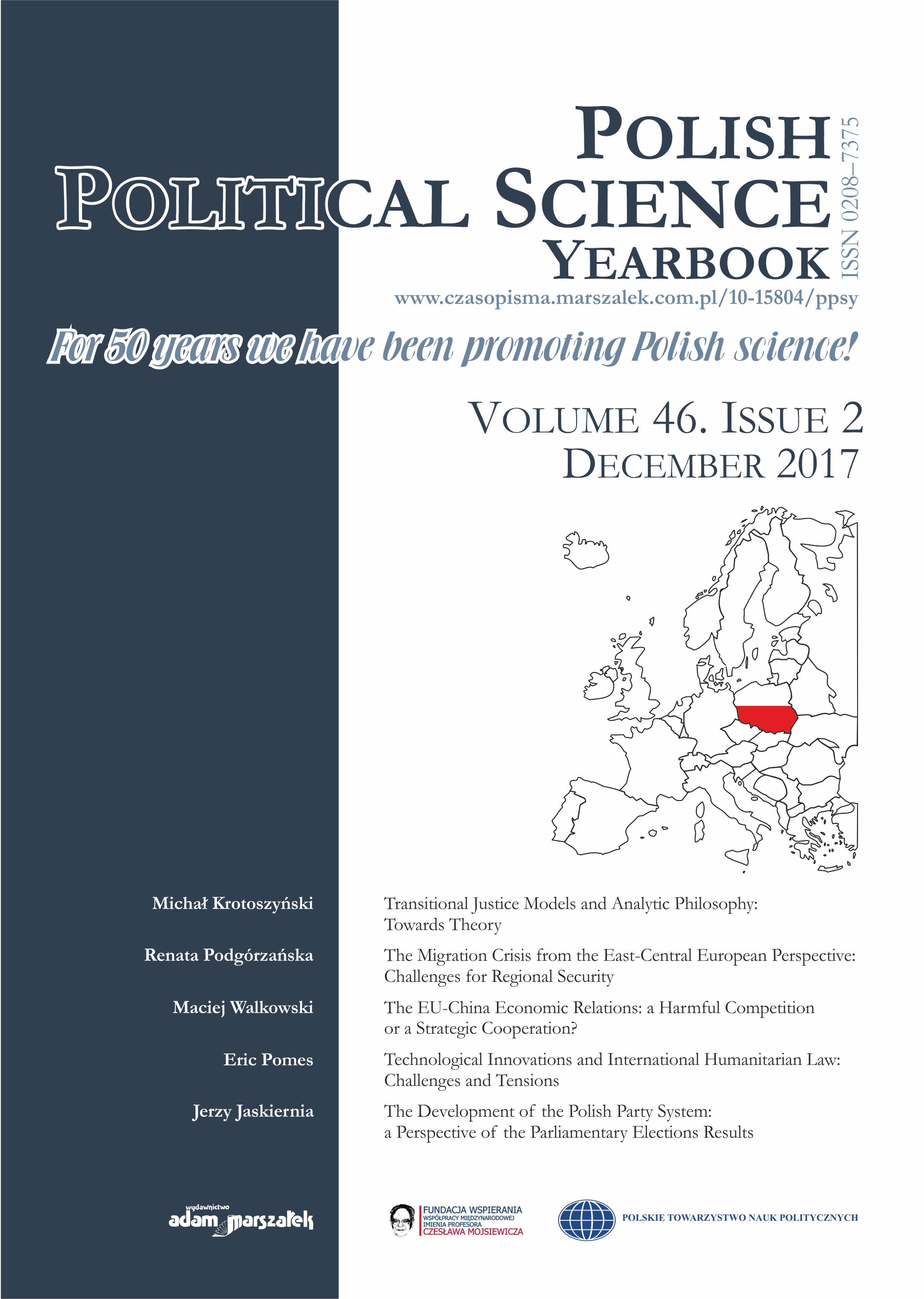
Germany is an example of a country which has been implementing transitional justice for decades and is still active in this field. What is more, contemporary Germans have recently come to terms with their not-so-distant past and their negligence in this area by showing the falsehood, backwardness, and injustice as negative foundations of the young Federal Republic. This article evokes the person of Fritz Bauer, the prosecutor in the state of Hessen. His struggle for human dignity and the memory of his achievements after his death exemplify an accomplished case of transitional justice and the memory of it. During his lifetime he contributed to bringing to trial numerous Nazi criminals, even at the cost of habitual threats and disregard. Forgotten for a few decades, Bauer and his legacy have been recently rediscovered and studied. Eventually, Bauer became a movie character and was finally brought back to the collective memory of Germans. The belated, but a well-deserved wave of popularity of Fritz Bauer in the German culture memory proves that reflections on the transitional justice are still topical and important.
More...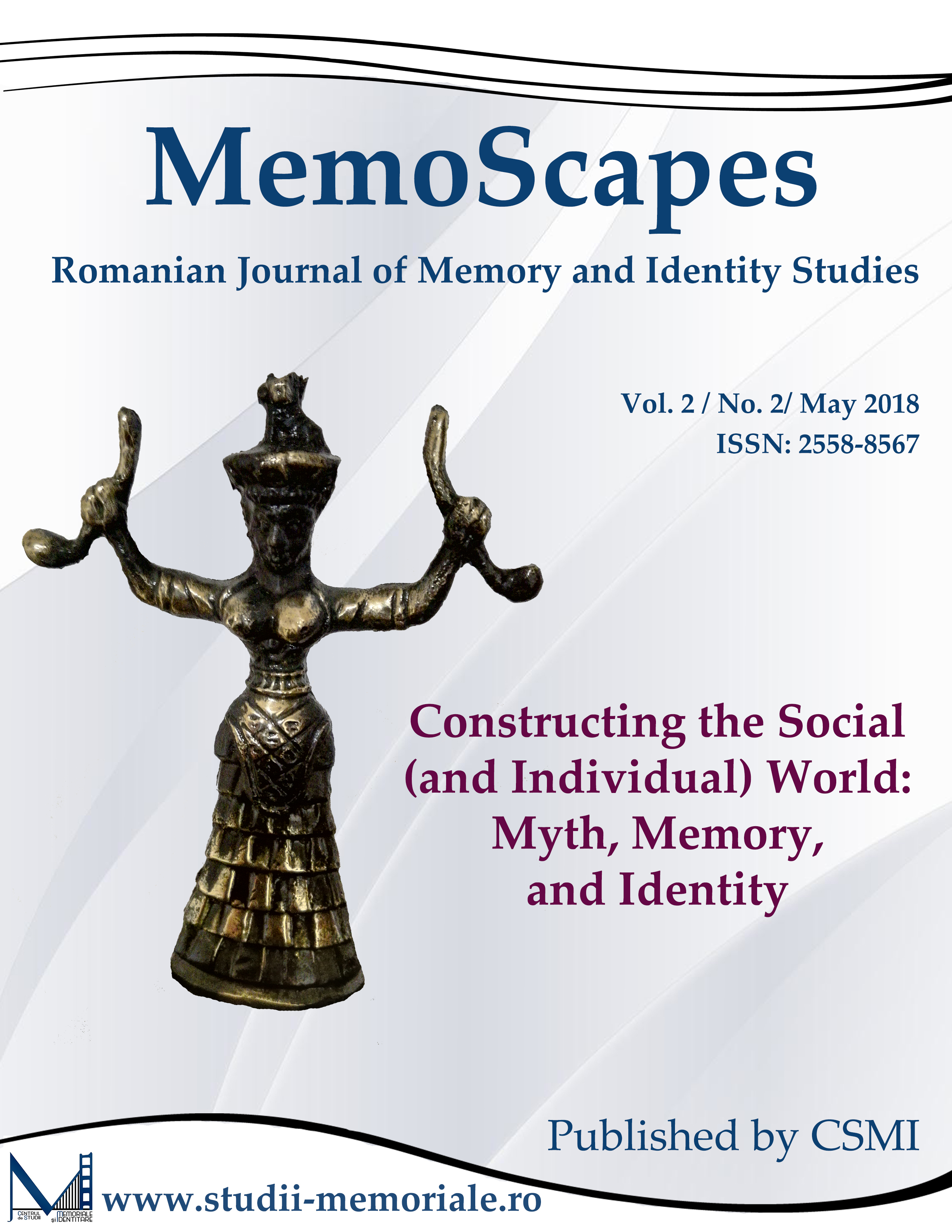
Our current issue aims at finding answers to the question of identities in Central Europe and the Black Sea Region (BSR) from different perspectives: national, regional, local, and social. Its purpose is twofold: on the one hand, to describe and analyze the construction, adaptation, evolution and transmission of the national/local/cultural identities in Central and Eastern Europe and the Caucasus seen as processes under Western influences but bearing local meanings and acquiring special shapes and contents, and, on the other, to see what is at stake in building an European identity and its influence on the national/regional/local/cultural identities of Central and Eastern Europe as well as the Caucasus.
More...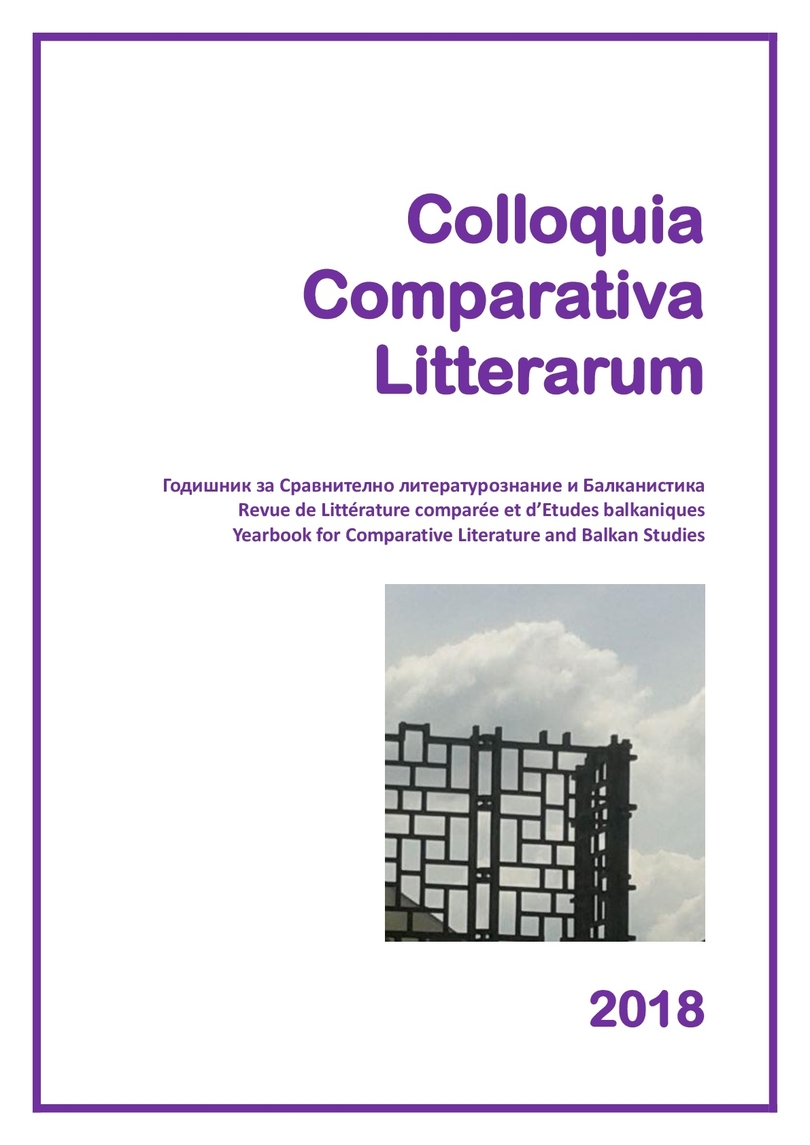
За книгата: Милена Кирова. Героичното тяло. История и мъжественост в Еврейската Библия. Кн. 2. София, ИК „Кибеа“, 2017. [Kirova, Milena. The Heroic Body. History and Masculinity in the Hebrew Bible. Part 2. Kibea Publishing house, Sofia, 2017.]
More...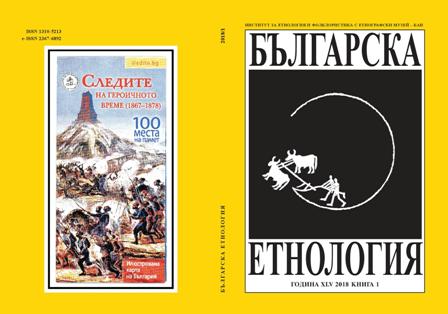
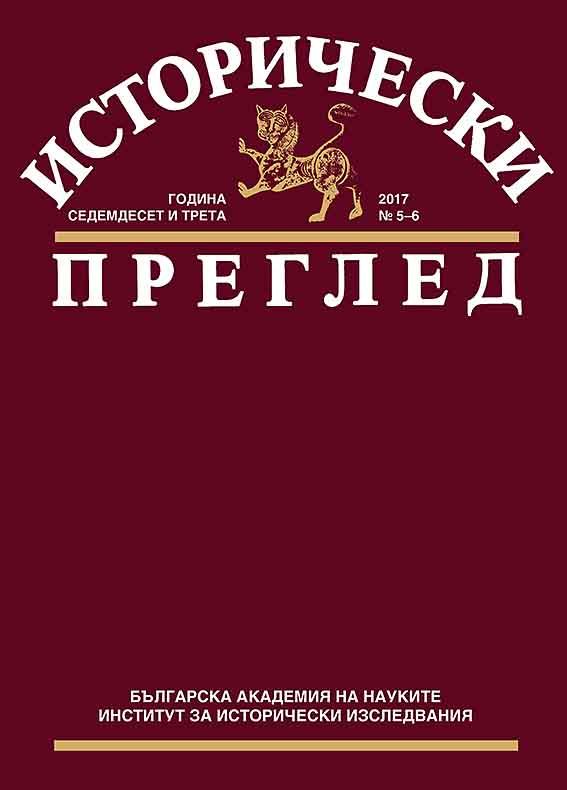
Under direct German influence, anti-Semitism and racism were imposed as a state ideology and policy in the Independent State of Croatia during the Second World War, and thousands of Jews became victims of that. The lack of political opposition in the country turns the Catholic Church in the only opponent and corrective of the Holocaust. Since it could not protect all Jews whose destiny was decided in Berlin, not in Zagreb, the only realistic program of action of the Catholic Church was to at least champion for the Jews of mixed marriages, those who had adopted Catholicism, the children, the elderly people and others. As a result, many were taken to Dalmatia (in the Italian occupation zone) or outside the country.
More...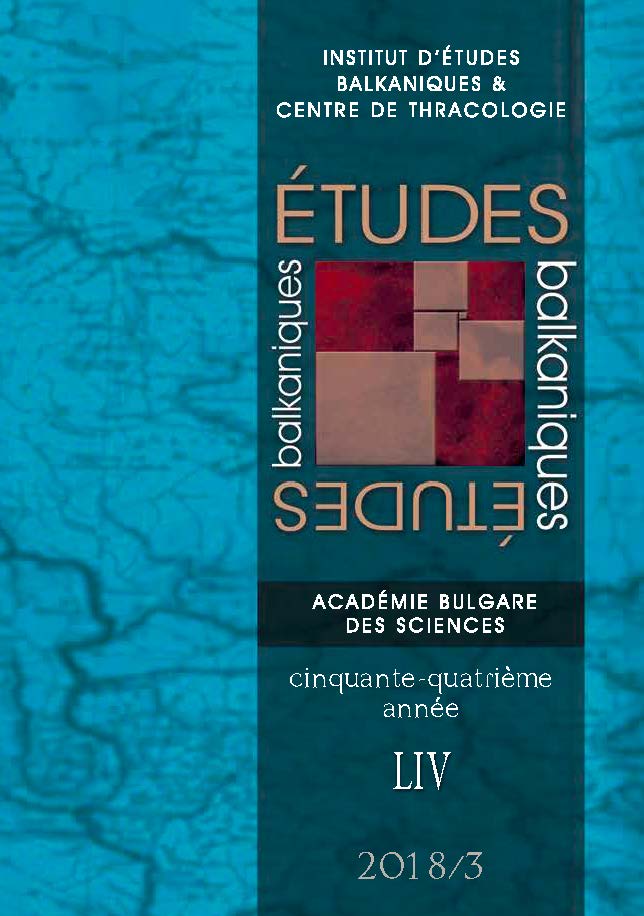
The article describes the establishing of the first circle of Kabbalists in Salonica by two scholars who later laid the foundations of The Golden Age of Safed: R. Joseph Karo, whose Shulchan Aruch became the authoritative codification of Jewish law; and his companion, kabbalist and poet R. Solomon Halevi Elkabetz. While performing a mystical ceremony on the nights of Shevuot (Pentecost) of 1533, a prophetic voice was heard through R. J. Karo’s throat and mouth. The voice urged the companions to ascend immediately to the Land of Israel in order to redeem the Assembly of Israel and be redeemed from exile.Special weight is given to the messianic enthusiasm of the circle, and to their interpretation of the triumphs of Sultan Suleiman the Magnificent over the Christian coalition led by Emperor Charles V as an omen to the fall of the satanic realm of “Edom” and as an encouraging step towards redemption.
More...
Scholars have relied upon diverse methodologies and sources to produce a new corpus of studies about Salonica’s Jews that explores the impact of the end of the Ottoman Empire and the consolidation of the Greek nation-state. Much of the newer scholarship, however, reinforces the perception that Salonica’s Jews experienced a period of “decline” after the city’s incorporation into the Greek state (1912 – 1913) that culminated in their deportation to Auschwitz (1943). This study investigates why such a lachrymose and teleological interpretation of Salonican Jewish history persists today. By reference to new sources and a different interpretive lens, this article also challenges conventional wisdom concerning key turning points in the narrative of the city’s Jews: a major fire (1917), a compulsory Sunday closing law (1924), and the first major act of anti-Jewish violence (1931). The article thus offers a new approach to assessing the encounters between the multiplicities of Jews in Salonica and the Greek state.
More...
Bouena Sarfatty was born in Salonika in 1916 to a Sephardi family. After World War II, she memorialized her birthplace by composing hundreds of Ladino verses (coplas) about Jewish life in the twentieth century. Her phenomenal memory and personal insights provide a poetic mirror that reflects the multi-cultural environment which she experienced personally. The poems appearing below reflect her thoughts about the process of modernization, whether of language, education, dress or mentalité. European influences created a cosmopolitan city that clearly affected Jewish life. The changes that transpired following the devastating fire of 1917 often harmed the development of this community that had been so vibrant and essential for centuries. Be that as it may, the poems written by this native Salonikan present a unique glimpse into the mindset and experiences of multilingual Jews attempting to adapt to the twentieth century and life in a multi-cultural city.
More...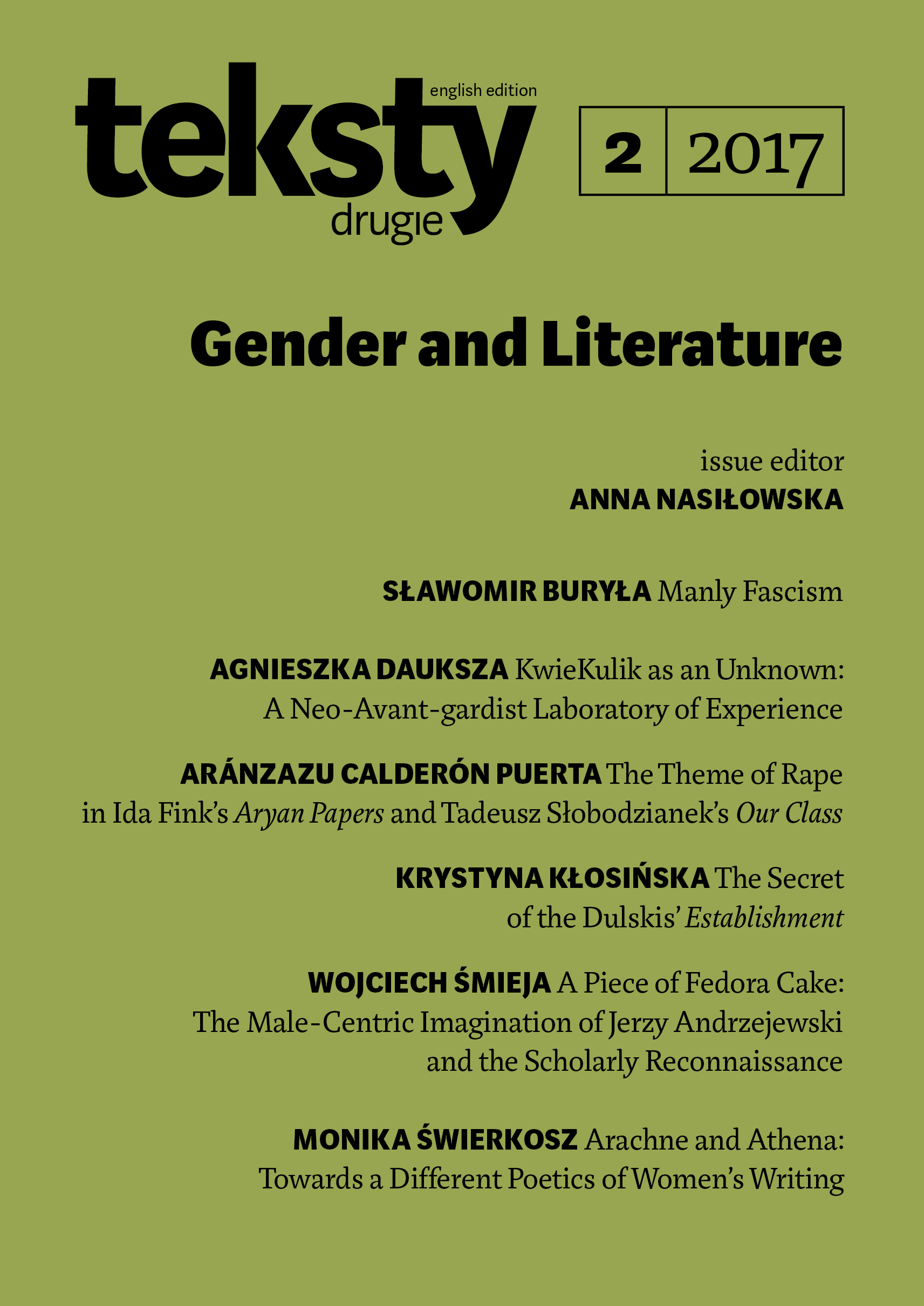
The article analyses the ways in which Central European postwar societies produce gen¬dered representations of Holocaust stories. Calderón Puerta shows how sexual violence functions in culture, highlighting the different ways in which it can be represented in literary texts: it can be understood as a symbol of relationships between antagonistic communities of men (what Roland Barthes refers to as mythologization), but it can also be seen to symbolize the continuum of violence in patriarchy (violence against specific women, structural violence and symbolic violence). Calderón Puerta argues that the different ways of understanding the representation of rape are related to the difference between masculine and feminine points of view.
More...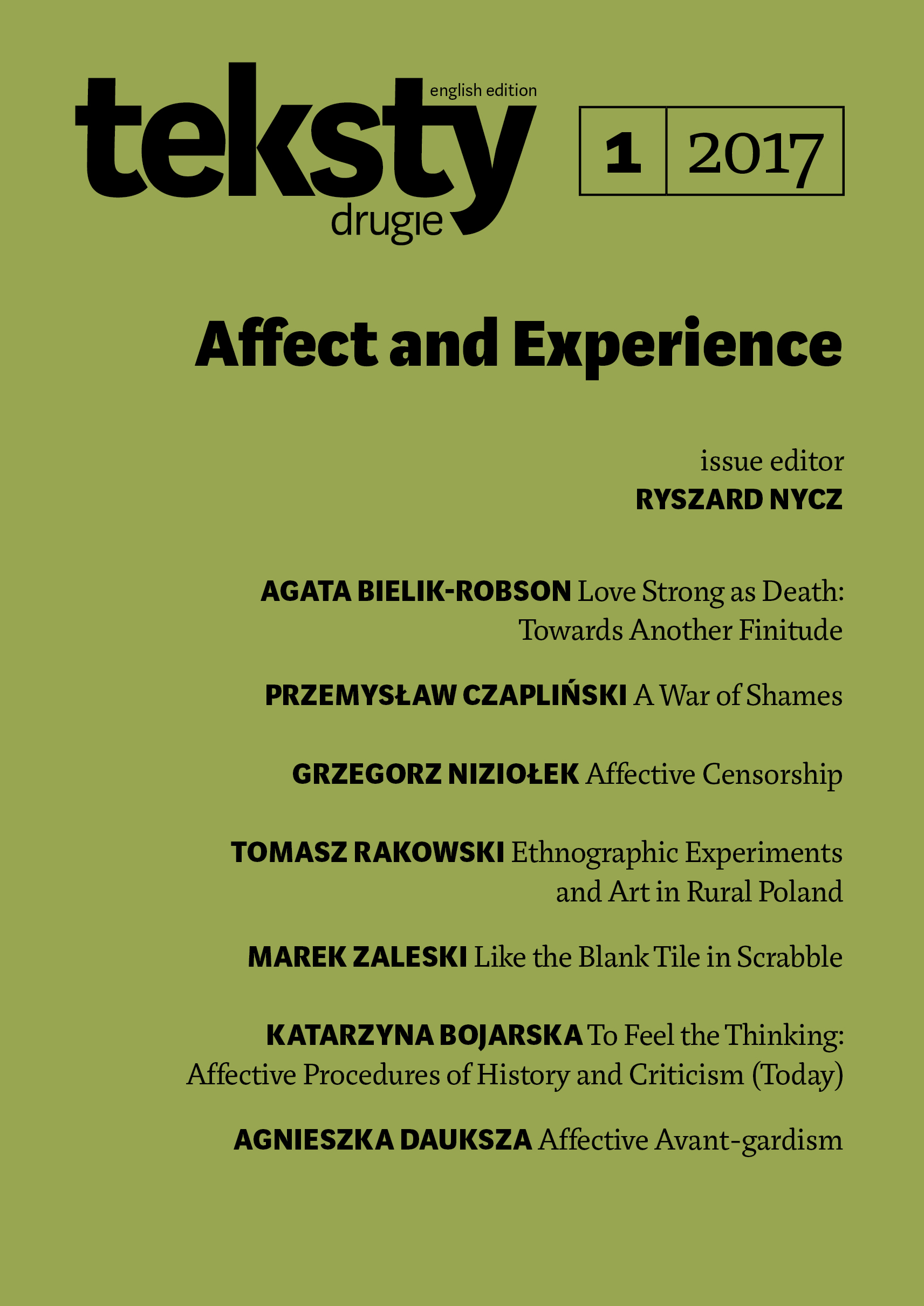
The essay focuses on love as a characteristic marker of a finite existence and its inherent relationship with others. Against the thanatophilic thought of Martin Heidegger, who defined human life as being-towards-death, the author would like to develop a philosophy of love which is, at the same time, an alternative philosophy of finitude. In order to do so, she evokes the Jewish concept of ahava which cannot be reduced either to the Greek sublimatory eros or the Christian agape. The author understands ahava as a way in which finite contingent life says yes to itself as a life, and not as a short-lasting moment of being, dead the very moment it gets born (as in Schopenhauer.s famous pun: natus est denatus). She also claims that there is a specifically Jewish conception of the love of the neighbour, which cannot be conflated with the Christian one and which implies its own rendering of both ‘love’, constituting an alternative to death, and ‘the neighbour’, constituting the truly singular other.
More...